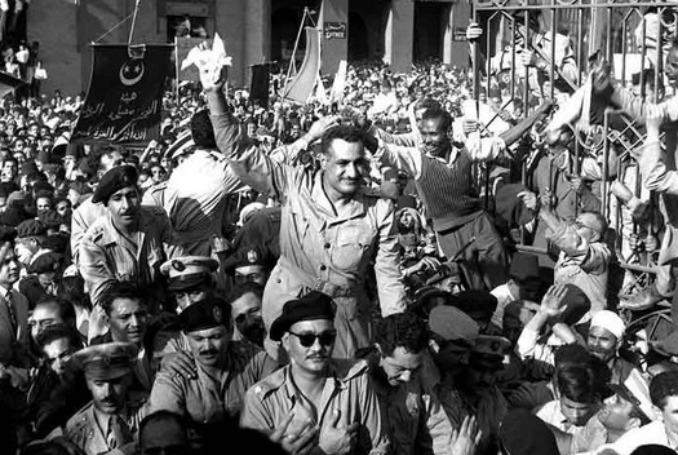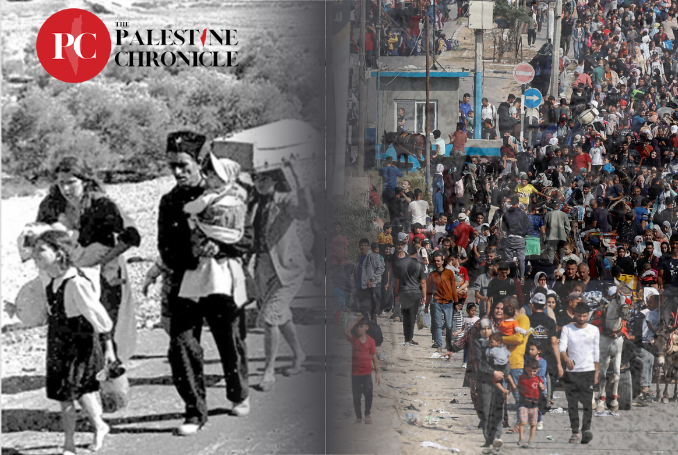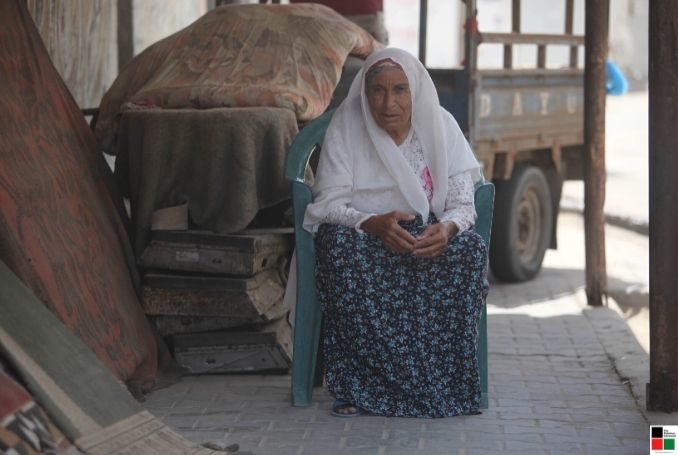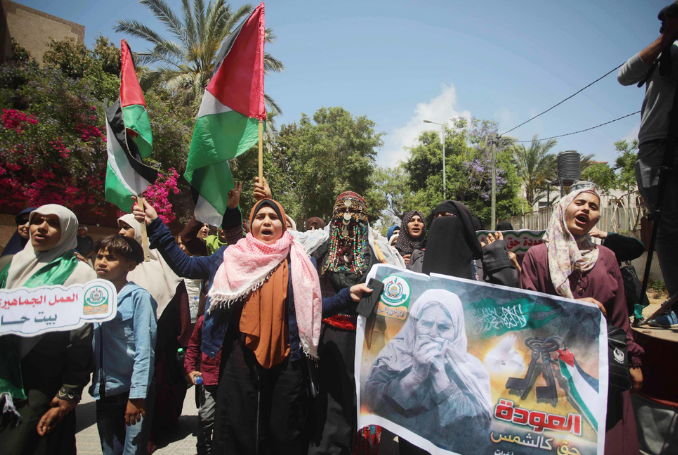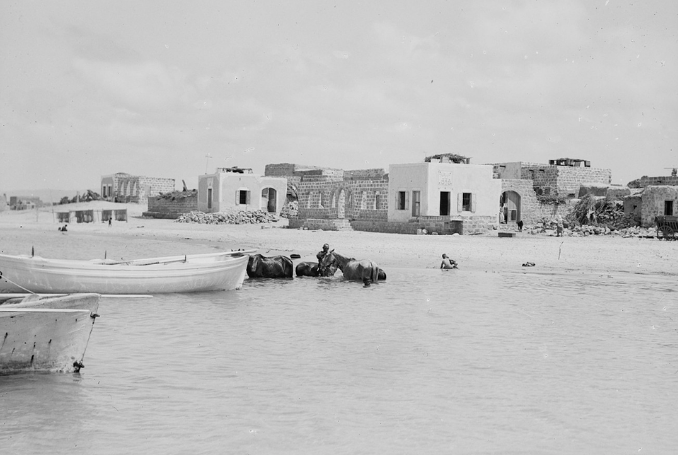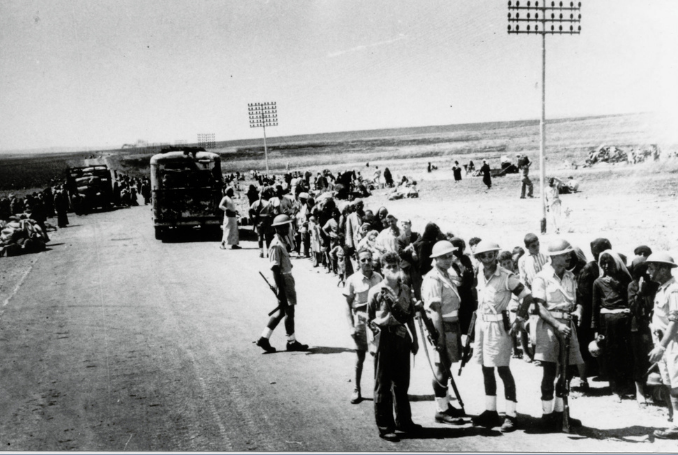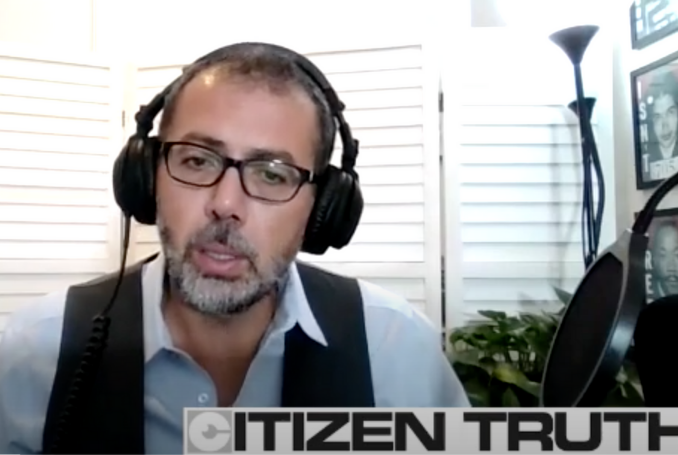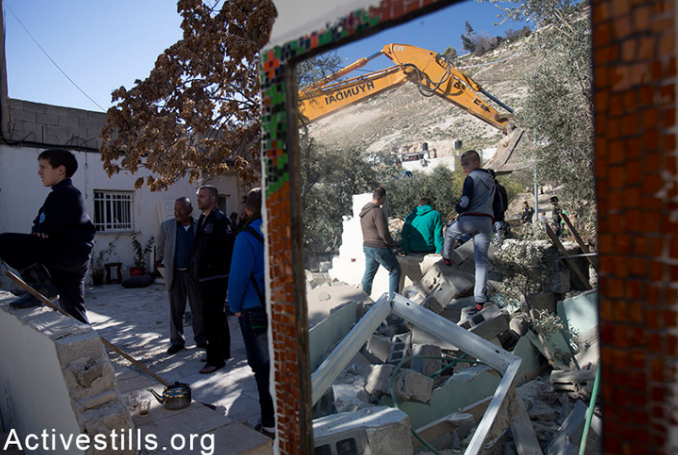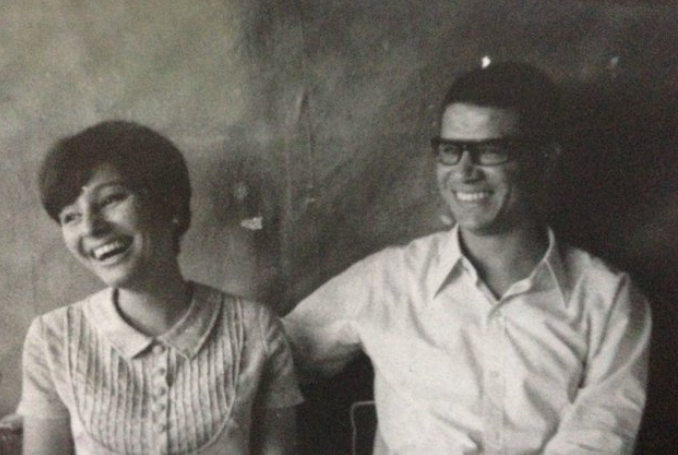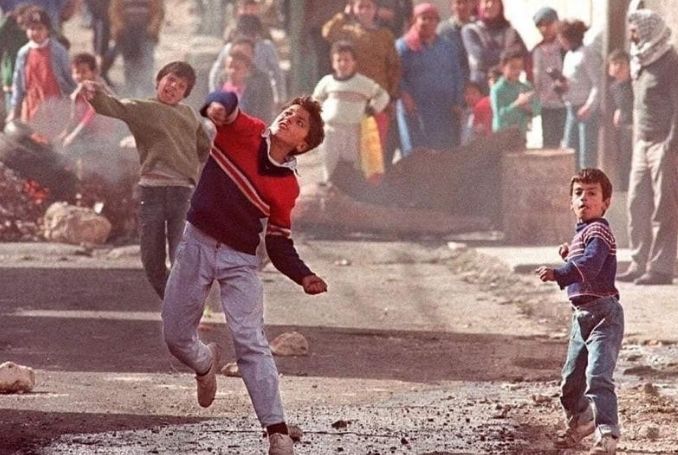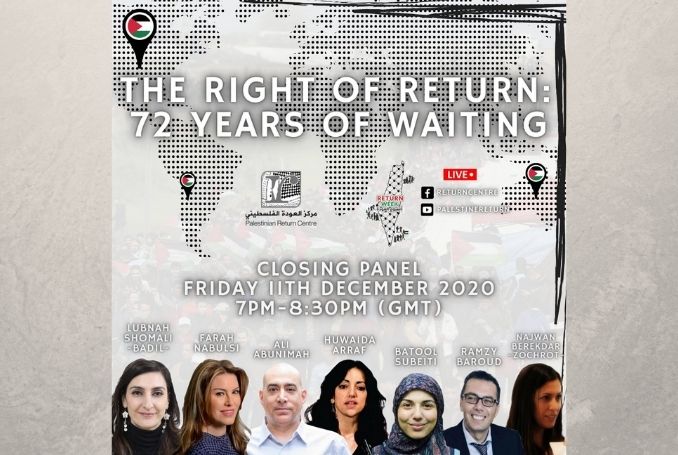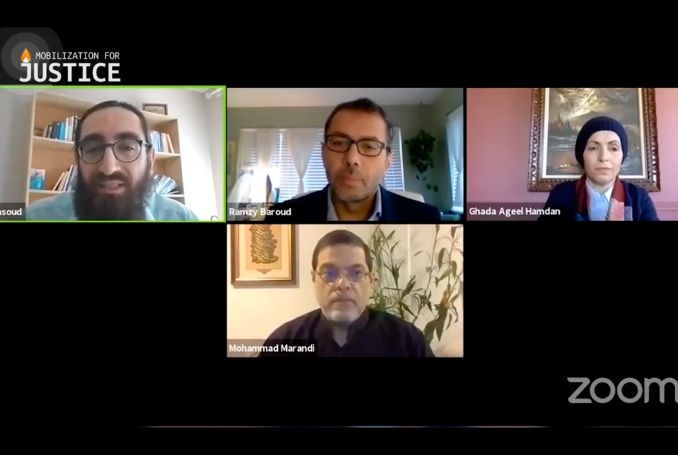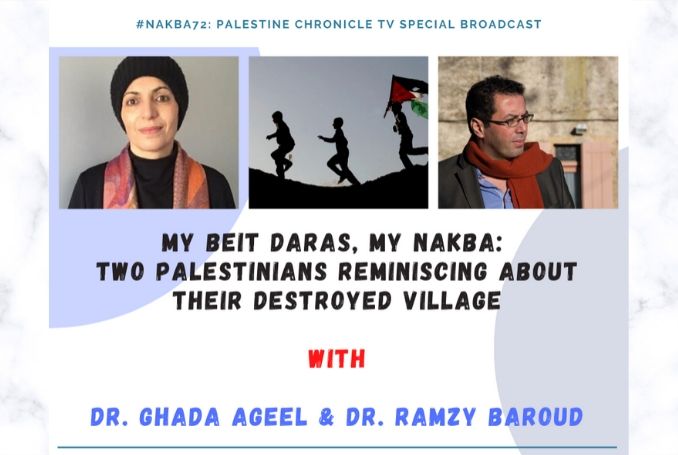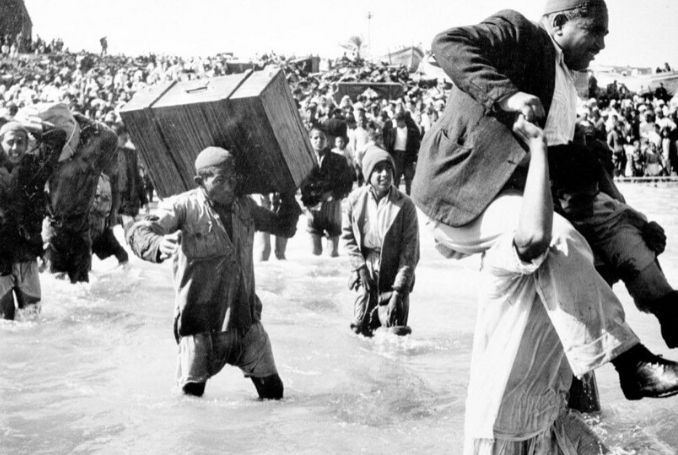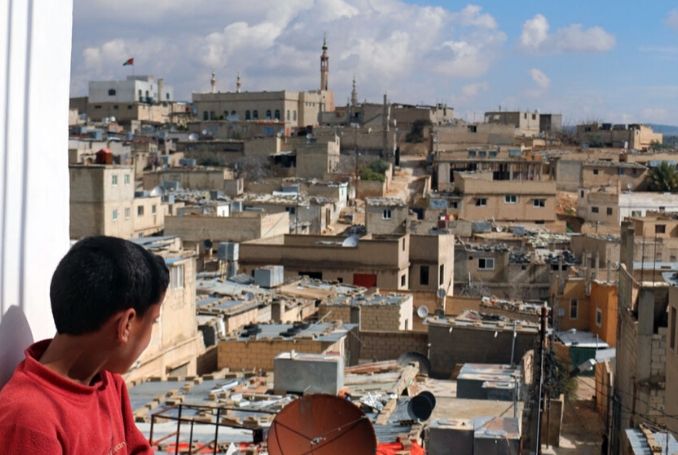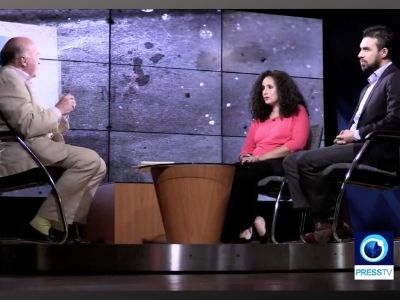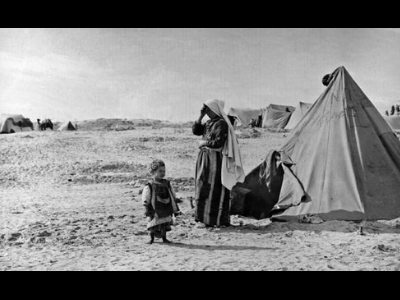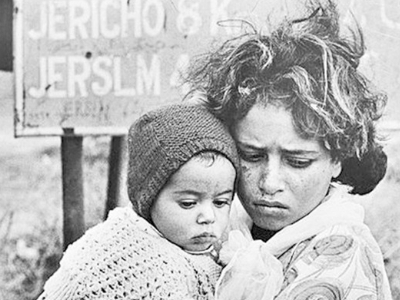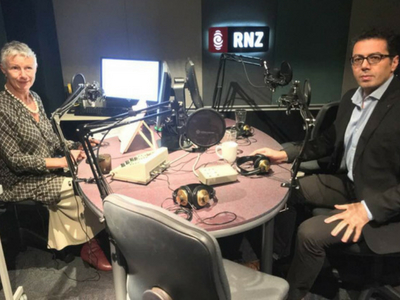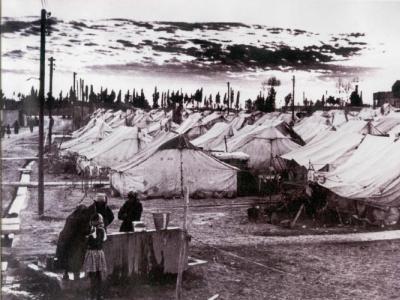- May 31, 2025
Unveiling Nasser’s Secrets: Arabs, Palestine, and the Crucial Timing
Palestinians’ expectations from the Arab world have shifted. They no longer seek a call to arms or a comprehensive embargo on Israel, but rather the cessation of any actions that support the adversary against the two million besieged people in Gaza.
Time for Israel to Pay: This is How to Prevent a New Nakba in Palestine
The ‘Gaza Nakba’ must be rejected, not just by words, but through solid Arab and international action, to prevent Israel from taking advantage of the war to expel Palestinians out of their homeland, again.
Erasure vs. Sumud: How the Nakba Came to Define the Collective Palestinian Identity
For Palestinians, the Nakba is not a single date. It is the whole story, the conclusion of which will be written, this time, by the Palestinians themselves.
The Nakba Day Triumph: How the UN Is Correcting a Historical Wrong
May 15, 2023, UN Nakba Day represents the triumph of the Palestinian narrative over that of Israeli negationists. This means that the blood spilled during Gaza’s March of Return was not in vain, as the Nakba and the Right of Return are now back at the center of the Palestinian story.
Right of Return: Nakba is Back on Palestinian Agenda
And since the Nakba and the subsequent ethnic cleansing of Palestinian refugees are the common denominator behind all Palestinian suffering, the term and its underpinnings are back at center stage of any meaningful conversation on Palestine, as should have always been the case.
‘The Blood in the Barrel’: Decades of Israeli Propaganda are Faltering
A succession of events in recent weeks all points to the inescapable fact that nearly 75 years of Israel’s painstaking efforts aimed at hiding the truth about its origins and its current racially-driven apartheid regime are miserably failing.
‘Previously Unknown Massacres’: Why is Israel Allowed to Own Palestinian History?
It is time that those who have paid far more attention to the Israeli narrative abandon such illusions and, for once, listen to Palestinian voices, because the truth of the victim is a wholly different story than that of the aggressor.
Ramzy Baroud on the Plight of Palestinian Refugees (PODCAST & VIDEO)
In this podcast, Beauchemin and Baroud discuss the chapter, ‘Shit River’, the first chapter in Baroud’s collection, which tells the story of a third generation Palestinian refugee from Yarmouk seeking an escape out of Syria’s civil war.
The Nakba of Sheikh Jarrah: How Israel Uses ‘the Law’ to Ethnically Cleanse East Jerusalem
While the Israeli State claims to play an impartial role in this scheme, it is actually the facilitator of the entire process. The final outcome manifests in the ever-predictable scene, where an Israeli flag is triumphantly hoisted over a Palestinian home and a Palestinian family is assigned an UN-supplied tent and a few blankets.
Imagining Palestine: On Barghouti, Darwish, Kanafani and the Language of Exile
Millions of Palestinians continue to live in exile, generation after generation, painstakingly negotiating their individual and collective identities, neither able to return, nor feeling truly whole. These millions deserve to exercise their Right of Return, for their voices to be heard and to be included.
When the People Rose up: How the Intifada Changed the Political Discourse on Palestine
Thanks to the Intifada, the Palestinian people have demonstrated their own capacity at challenging Israel without having their own military, challenging the Palestinian leadership by organically generating their own leaders, confronting the Arabs and, in fact, the whole world, regarding their own moral and legal responsibilities towards Palestine and the Palestinian people.
Palestinian Intellectuals Discuss ‘Right of Return’ in a London Conference (VIDEO)
The webinar ‘The Right of Return: 72 Years of Waiting’, featured Huwaida Arraf, Ali Abunimah, Farah Nabulsi, Lubnah Shomali, Najwan Berekdar, and Ramzy Baroud.
Quds Day: Is The Palestine Question Complex or Complexified? (VIDEO)
This video has been recorded from a forum that discussed why Palestine is often referred to as a complex question, problem, or issue that needs a solution.
Why Israel Fears the Nakba: How memory Became Palestine’s Greatest Weapon
There can never be a just peace in Palestine until the priorities of the Palestinian people – their memories, and their aspirations – become the foundation of any political process between the Israelis and the Palestinians.
My Beit Daras, My Nakba: Two Palestinian Intellectuals Reminiscing about Their Destroyed Village (VIDEO)
Dr. Ghada Ageel and Dr. Ramzy Baroud have more in common than their scholarly research on Palestinian history and politics. They are both refugees, and the direct descendants of Palestinian refugees who have been expelled from their historic village of Beit Daras at gunpoint during the catastrophic events that led to the Palestinian Nakba of […]
How We Became Refugees: The Day My Grandfather Lost His Village in Palestine
It isn’t easy to construct a history that, only several decades ago, was, along with every standing building of that village, blown to smithereens with the very intent of erasing them from existence.
Arabs, UN Must Move to Swiftly Protect the Status of Palestinian Refugees
Palestinian refugees must not have to choose between forfeiting their legal and unalienable right in their own homeland and accepting a life of perpetual degradation and uncertainty.
‘Last Chapter’ TV Program Discusses Baroud’s ‘Last Earth’ (VIDEO)
Ramzy Baroud’s latest volume, ‘The Last Earth: A Palestinian Story’ is the subject of a lively discussion in this Press TV program, ‘Last Chapter’, involving former British MP, Derek Conway, Human Rights barrister, Salma Karmi-Ayyoub and political analyst and writer, Nasim Ahmed. The Last Earth recounts the experiences of ordinary people who have lost their homes, […]
‘World Refugee Day’: Palestinians Keep their Right of Return Alive through Hope, Resistance
By Ramzy Baroud The United Nations’ World Refugee Day, observed annually on June 20, should not merely represent a reminder of “the courage, strength and determination of women, men and children who are forced to flee their homeland under threat of persecution, conflict and violence.” It should also be an opportunity for the international community to truly […]
Great March of Return is Palestinians’ Cry for Justice
By Ramzy Baroud The aims of the Great March of Return protests, which began in Gaza on March 30 last year, are to put an end to the suffocating Israeli siege and implement the right of return for Palestinian refugees who were expelled from their homes and towns in historic Palestine 70 years ago. But […]
The Moral Travesty of Israel Demanding Arab and Iranian Money for Its Own ‘Nakba’
By Ramzy Baroud The game is afoot. Israel, believe it or not, is demanding that seven Arab countries and Iran should pay $250 billion as compensation for what it claims was the forceful expulsion of Jews from Arab countries during the late 1940s. The events that Israel cites allegedly occurred at a time when Zionist Jewish militias […]
Latest US-Israel Attack on Palestinian Refugees Will Prove Futile
By Ramzy Baroud The US government’s decision to slash funds provided to the UN agency that cares for Palestinian refugees, UNRWA, is part of a new American-Israeli strategy aimed at redefining the rules of the game altogether. As a result, UNRWA is experiencing its worst financial crisis. The gap in its budget is estimated at […]
The Last Earth: a Palestinian Story – Book Review (VIDEO)
By Jim Miles (Ramzy Baroud. The Last Earth: A Palestinian Story. London: Pluto Press, 2018. Order it now) The Last Earth is a masterful weaving of personal stories into the full tapestry of a people, of individuals, torn from their homes and homeland. It is the kind of history not bound up in sequential dates, political […]
Baroud in Al Jazeera – Palestine: Diary on an UNRWA Kid
Maintaining one’s dignity while living a dismal existence in a refugee camp is not an easy feat. My parents fought hard to spare us the daily humiliations that come with living in Nuseirat – Gaza’s largest refugee camp. But when I turned six, and joined the UNRWA-run Nuseirat Elementary School for Boys, there was no […]
Palestine is Not occupied, It is Colonized
By Ramzy Baroud June 5, 2018, marks the 51st anniversary of the Israeli occupation of East Jerusalem, the West Bank and Gaza. But, unlike the massive popular mobilization that preceded the anniversary of the Nakba – the catastrophic destruction of Palestine in 1948 – on 15 May the anniversary of the occupation is hardly generating equal mobilization. The unsurprising death of the ‘peace […]
Ramzy Baroud on ABC Australia
Ramzy Baroud’s interview in ‘The World’ – ABC Australia about the situation in Gaza and the rest of Palestine, on May 14. Click here to watch the full interview…
Ramzy Baroud Interviewed by Kim Hill – ‘Saturday Morning’ (RNZ)
Ramzy Baroud interviewed by Kim Hill on popular ‘Saturday Morning’ national radio programme (RNZ), on May 19. Click here to listen…
My Home is Beit Daras: our Lingering Nakba
By Ramzy Baroud When Google Earth was launched in 2001, I rushed immediately to locate a village that no longer exists on a map, which now delineates a whole different reality. Although I was born and raised in a Gaza refugee camp, and then moved to and lived in the United States, finding a village […]
Ramzy Baroud Speaking at the Rally for Gaza in Sydney (VIDEO)
Hundreds of supporters gathered in Sydney on Tuesday night in solidarity with the Palestinian protesters killed by the Israeli military as the US celebrated the opening of the US Embassy in Jerusalem. “The Israelis and their American friends are dancing. They are celebrating while my people have dug 58 more graves just today,” Dr Ramzy […]
Ramzy Baroud, Al Jazeera: My Palestinian Right of Return is Sacred
This is the story of four Palestinian peasants who have been dead and buried for many years, but whose legacy continues to define the collective aspirations of a whole nation. It is also the story of a village that was erased from existence 70 years ago. The peasants are my grandparents, and the village of […]


